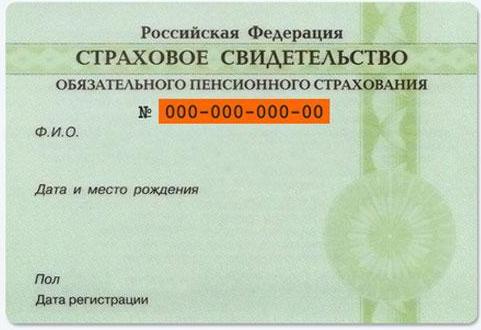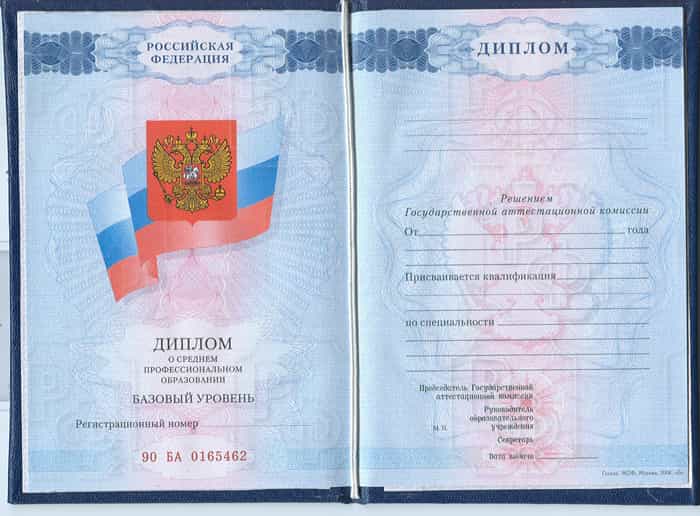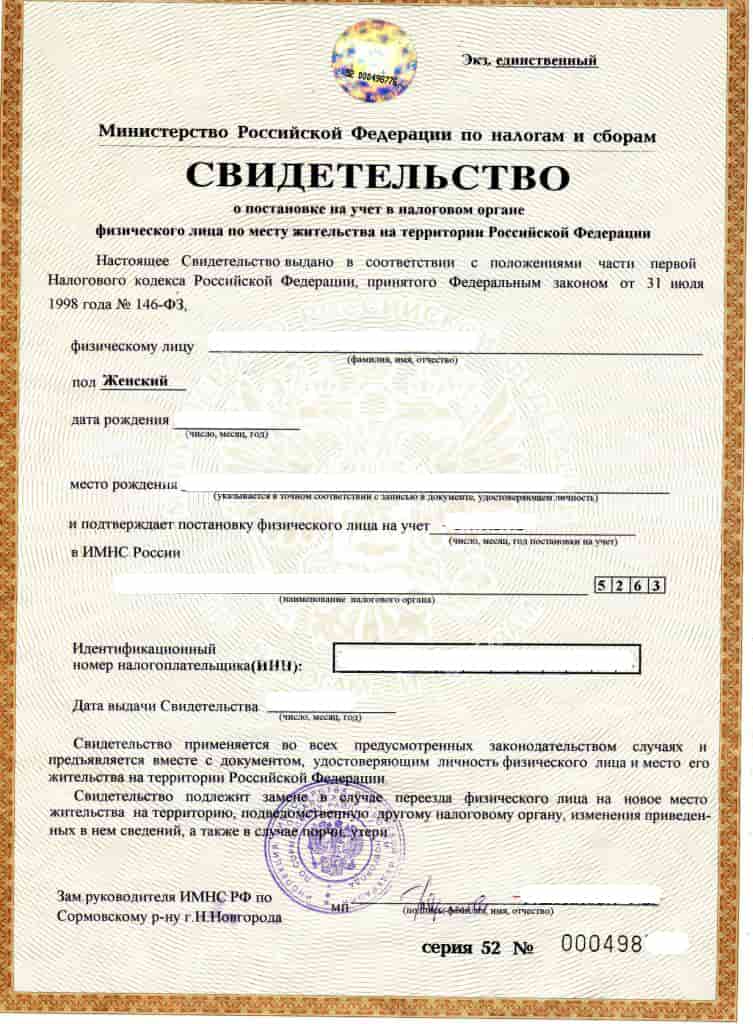Home/Recruitment/Pensioner
Modern realities force citizens to continue working after retirement. The law does not prohibit this. A citizen is free to independently decide when to stop working. For an employer, hiring a retiree comes with a number of additional features. Thus, some categories of citizens who are on well-deserved rest may qualify for additional privileges. WWII participants and combat veterans are entitled to additional annual leave without pay. In most cases, it is legally impossible to refuse a person because of his age. However, a number of restrictions still exist. In order to know in advance all the features of hiring a pensioner, it is worth familiarizing yourself with the latest information on the topic.
Hiring a pensioner of the Labor Code of the Russian Federation
The employment of a pensioner must be carried out in strict accordance with the provisions of the Labor Code of the Russian Federation. The law does not provide special conditions for hiring citizens who are on well-deserved rest. The entire procedure is carried out in accordance with general standards. Article 37 of the Constitution of the Russian Federation states that labor in Russia is free.
Attention
The Labor Code of the Russian Federation prohibits establishing any restrictions in relation to people who have reached retirement age. As a general rule, a citizen has the right to begin working at the age of 16. In some situations, the age limit may be reduced to 14 years. At 55 and 60 years of age for women and men, respectively, a person has the right to begin receiving a pension. At the same time, the prohibition on continuing to work is not indicated in regulatory legal acts.
If an employer does not want to hire a retiree, a written refusal must be provided stating the reason. A similar rule is enshrined in Article 64 of the Labor Code of the Russian Federation. If a company does not want to work with a person because of his age, it will be considered discrimination. However, there are a number of professions for which a maximum age threshold is established.
This category of citizens has certain benefits. Thus, WWII participants and combat veterans have the right to receive additional annual leave of up to 35 working days without pay. You can use the privilege at any time.
When do they have the right to refuse?
Professions and areas of activity with an age limit of 65 years:
- Rectors and vice-rectors of universities, directors and deputy heads of scientific organizations.
- Civil servants.
- Managers and their deputies in federal, regional and municipal medical organizations.
Causes
Refusal to hire a pensioner is possible if the candidate does not meet the employer’s requirements. For example, a citizen is going to get a job as a security guard, but does not have the skills and training or the appropriate certificate. This application withdrawal option is legal and is considered a general case of personnel selection.
- Snickers cake
- Cherry compote for the winter
- Calculation of northern bonuses in the Far North regions for employees
The rule applies to all workers, not just retirees.
An employer's refusal to hire candidates who are over the age limit for this profession is legal. In this case, employment will be impossible even if the applicant meets other requirements for the position (certain length of service, special education, etc.).
Refusal procedure
The procedure for rejecting a pensioner’s candidacy is not prescribed by law. Often this is an oral message about non-compliance with age requirements for civil servants, etc. The person hiring him will voice it during the interview. The pensioner may demand to justify the employer's refusal in writing and challenge his decision in court.
If the reasons are justified, you will not be able to win the process.
Step-by-step instructions for hiring a pensioner
The procedure for hiring a pensioner does not differ from the standard one. In order for a citizen on well-deserved rest to be able to start working, the following actions will be required:
- Select a company that requires employees and go through an interview. If the parties have reached an agreement, an application for employment of the pensioner is submitted.
- Prepare a package of documentation and present the required papers to the employer.
- Conclude an employment agreement with the company. The paper must be studied by the employee and signed by him.
- Familiarize yourself with internal regulations and other documents that a pensioner to be hired must know. The person leaves a signature as confirmation of agreement to comply with the established rules.
- Wait for the order to come out. The employer is responsible for processing it. The document is also provided to the employee against signature.
- Complete training on labor protection and sign in the appropriate register.
When all actions are completed, an employee of retirement age is considered hired and can begin working within the agreed period.
Refusal to hire a pre-retirement person: how not to fall under the Criminal Code of the Russian Federation
Dismissal
Strictly speaking, not a single employee can be fired unreasonably - not just a pre-retirement employee. In any case, there must be grounds for dismissal. For example, an employee’s personal statement, absenteeism, showing up at work drunk, repeated failure to fulfill job duties, etc. A complete list of grounds for dismissal is in the Labor Code of the Russian Federation. Therefore, to terminate an employment contract you need to use only one of them. Then the dismissal will be justified.
But this is only at first glance. After all, the above are only formal requirements. We can hardly be sure that the dismissal of a person for the same absenteeism was fair if the order contains a reference to paragraphs. "a" clause 6 of Art. 81 Labor Code of the Russian Federation. What if there was no absenteeism at all? What if the employee was simply expelled from the staff because of personal hostility towards him, and formally everything was made out as if he himself was to blame?
Therefore, in fact, justified dismissal must (in the interests of the employer) be understood as the presence of factual circumstances, that is, real grounds giving the company the right to use one or another legal basis for dismissal. And here it is important that the documents accompanying the dismissal contain evidence that these circumstances occurred. Then the dismissal will be truly justified.
For example, in the case of dismissal for the same absence, the company must have:
a) certificate of absence of the employee from the workplace;
b) a requirement for the employee to provide written explanations about the reasons for absence;
c) written explanations, where, in the employer’s opinion, a valid reason for absence is not indicated, or an act of the employee’s refusal to provide explanations;
d) an order to terminate the employment contract indicating that the employee was absent from the workplace without good reason.
Otherwise:
- if this is an ordinary employee, the company faces only administrative liability (Article 5.27 of the Code of Administrative Offenses of the Russian Federation);
- if this is a pre-retirement person, the general director will also face criminal liability (Article 144.1 of the Criminal Code of the Russian Federation), but on the condition that he made another mistake: he admitted that the main complaint against a pre-retirement person is his age, which became the reason for not hiring or dismissal .
Recruitment
Regarding recruitment in Art. 64 of the Labor Code of the Russian Federation even directly states: “Unreasonable refusal to conclude an employment contract is prohibited.”
The following explains what a justified and unjustified refusal is:
- if an employee does not meet the employer’s expectations in terms of his business qualities, then he can be refused employment - this will be justified;
- This cannot be done solely for reasons such as gender, age, place of residence, nationality, language, property, family, social and official status, if they are in no way related to business qualities - this will be unreasonable.
The reason for refusal can be communicated orally. The company is obliged to respond in writing only if the person requests it. Then a reasoned response must be sent to him within 7 working days.
Refusal to conclude an employment contract can be appealed in court - as stated at the end of Art. 64 Labor Code of the Russian Federation.
Thus, this general rule also applies to pre-retirees. Moreover, they are mentioned separately in it - where we talk about the inadmissibility of refusing to hire on the basis of age.
At the same time, we note that age cannot be a refusal motive in itself, but it can be one if it is a business quality, that is, it affects the performance of work. For example, if a company is looking for a courier to transport heavy goods, then it is logical that when choosing a courier it will give preference to younger and more resilient employees.
The idea is not new
The new criminal norm is by no means the know-how of our legislators. It is entirely written on the model of Art. 145 of the Criminal Code of the Russian Federation “Unreasonable refusal to hire or unjustified dismissal of a pregnant woman or a woman with children under three years of age.”
In terms of their disposition and sanctions, these two articles are absolutely similar. Therefore, according to the practice of applying Art. 145 of the Criminal Code of the Russian Federation, one can understand how the new twin article will be applied.
In this regard, the main thing that immediately attracts attention is Art. 145 of the Criminal Code of the Russian Federation is practically dead. It has been in the code for almost 20 years, and during all this time only 3 people have been convicted under it. This is evidenced by statistical data from the Judicial Department of the Supreme Court of the Russian Federation.
One can speculate why this is so. Article 145 (as well as the new Article 144.1) provides for guilt in the form of intent. That is, in order to attract the general director (or an employee who has the right to enter into and terminate an employment contract), it is necessary to prove that he refused to hire or fired the woman precisely because she was in a position or had a young child. But this is extremely difficult to do, since no one in their right mind would indicate in the dismissal order or explanation the reason for not hiring - pregnancy or a young child.
Therefore, in the case of pre-retirees, investigators will have the same problem.
Of course, there cannot be a complete parallel between the two articles and the two named categories of employees. In the light of the pension “reform”, the issue with future pensioners in the social and political aspect is now much more acute (for women, unlike them, no one increased the gestational age...). Therefore, there is reason to assume that in the first year or two, inspectors will be active in searching for grounds for initiating a case under Art. 144.1 of the Criminal Code of the Russian Federation. Accordingly, in order to protect themselves, employers during this period need to more carefully, thoughtfully and motivatedly draw up documents on the refusal to hire and on the dismissal of people of pre-retirement age. Then there should be no problems with the Criminal Code of the Russian Federation.
ARTICLE by Prokazin E.A., editor-expert of the magazine “Time of the Accountant”
Necessary documents when applying for a job as a pensioner
In order for an employer to agree to start cooperating with a pensioner, the citizen will need to prepare a package of documentation. It must include:
- passport;
- pensioner's ID;

- SNILS;

- document confirming qualifications - diploma, certificate, etc.;

- work book;
- TIN, if available.

When hiring for some positions, a pensioner will additionally need to provide a document that allows them to get an idea of the person’s health. In some situations, a medical examination may be required. Such requirements mainly apply to persons who want to carry out activities in the field of medicine, food sales, catering, and the food industry. The presence of harmful working conditions also requires a preliminary medical examination. If a citizen of retirement age refuses to take action, the employer will not hire him for the chosen position.
Employment of a pensioner: advantages, disadvantages associated with registration
Upon entry into work, pension payments remain at the same level, but are not subject to indexation. The funds accumulated as a result of indexed transfers are returned to the pensioner after the pensioner resigns.
To officially register for a vacant position, a pensioner must have the following documents with him:
According to Article 25.1 of the Federal Law of the Russian Federation “On the State Civil Service of the Russian Federation”, a person who has reached retirement age cannot be hired as a civil servant.
| To receive the above benefits, you must provide a document confirming the relevant pensioner status. |
This age limit also applies to candidates for leadership positions in universities.
Yes, it will. Work under a contract is equal to work according to a work book, and also does not affect the reduction of pension payments.
He should be dismissed based on the application submitted by him on any day. An initiative for dismissal on the part of the employer, the reason for which is the age of the employee, is not allowed.
Registration agreement
As in the classic situation, cooperation with a citizen who is on a well-deserved rest is carried out on the basis of an employment contract. If a person continues to work in the company in which he worked previously, the need to enter into an agreement in connection with reaching retirement age does not arise. If a pensioner joins a new company, one of the following agreements will be concluded:
- urgent;
- unlimited;
- part-time agreement;
- contractor;
- civil law.
The choice of type of agreement depends on the specifics of the work to be done and the agreement reached. You can sign up for an employment contract for a pensioner here.
Responsibility for violations
If the parties do not draw up any agreement and do not make entries in the work book, they are breaking the law, as established in Government Decree No. 225 of 2001.
Article 5.27 of the Code of Administrative Offenses defines fines that range from one thousand to 50 thousand rubles. For repeated violations, an amount of 10 to 70 thousand rubles will be charged. For the third time, the manager’s qualifications are removed.
Some employers try to include clauses of the employment contract into the civil contract. For example, for performing certain services or concluding a document of an author's order. These violations can be identified by the tax service after a complaint received from a citizen.
A person can, through the court, obtain recognition of a civil law contract as an employment contract if the first contains the relevant provisions. Many employers simply change the name of the document in order not to bear the liability defined by the Russian Labor Code.
Hiring a pensioner under a fixed-term employment contract
Concluding a fixed-term contract only because of a person’s age is unacceptable. This ruling was made by the Constitutional Court in 2020.
IMPORTANT
If an employer forces a person to enter into a fixed-term contract only because the citizen is retired, he violates labor rights, the principles of equality and discriminates against the applicant for the position.
The grounds for concluding a type of agreement are enshrined in Article 59 of the Labor Code of the Russian Federation. The list includes the following features:
- a person carries out seasonal work;
- the citizen replaces the main employee;
- labor activity will be carried out abroad;
- a citizen is hired for temporary work, the duration of which does not exceed 2 months;
- the pensioner was hired to perform actions that are not related to the main activities of the company;
- the employee was hired to carry out specific work (cooperation with the person ends at the moment of signing the certificate of completion of work).
If none of them are available in the current situation, the employment of a citizen on well-deserved rest under a fixed-term contract can only be carried out with the consent of the person wishing to get a job. In the classic situation, a permanent employment contract is drawn up with a pensioner.
Attention
If an employer has entered into a fixed-term agreement without the person’s consent, the supervisory authority, having learned about this, will reclassify the agreement as permanent. It is impossible to conclude a fixed-term contract without grounds. However, the rules generally apply if a person receives an early pension. In a classic situation, the employer can still ask the applicant for the position to sign a fixed-term employment contract.
Classification of employment contracts for pensioners
Several types of contracts that can be concluded.
An open-ended employment contract is concluded on the basis of a standard set of documents: passport, work book, insurance certificate of state pension insurance, military registration documents (for those liable for military service), a document on the presence of special knowledge and documents on health status.
The last two documents are presented when the employer requests them.
A fixed-term employment contract (including for a period of up to 2 months) is concluded only by agreement of the parties. Most often they resort to it when performing seasonal work, when it comes to finding employment for a pensioner.
The calculation of vacation days will be carried out according to the rule - two working days per month of work. Compensation for unused vacation will also be accrued. Features of registration of a fixed-term employment contract:
- it is not concluded through the dismissal of an employee, i.e. a fixed-term contract is not concluded with an employee of an enterprise who has become a pensioner while working at this enterprise under an open-ended contract;
- If, after the expiration of the contract, the organization concludes the same contract with an identically assigned labor function, then it will be recognized as indefinite, and a fine will be imposed on the company.
A civil law agreement (contractor agreement) with a pensioner is concluded for a certain type of work: installation of equipment, renovation of premises, etc. The employer must inform the elderly employee that the work itself will be paid for, and payment for vacation or temporary disability certificate is not provided for it.
Another important fact: if the average monthly income of a pensioner for performing work/services under this agreement is lower than the minimum old-age pension, then the pension itself will be paid to the employee in full.
If his average monthly income is higher than the minimum old-age pension, then he will be paid 50% of the accrued old-age pension for each month of work.
In addition to the main job, a pensioner can work part-time. For this purpose, an employment contract is also concluded with him.
A pensioner can be an internal part-time worker (to combine positions in one company) or an external part-time worker (to combine positions in different organizations). The necessary documents for concluding such an employment contract are standard.
Hiring a pensioner without a work book
In a classic situation, the employer makes an entry in the employee’s work book about the beginning of interaction. In practice, a situation may arise when, for some reason, a pensioner cannot provide a document. In this situation, an employer who wants to officially record the fact of interaction with a citizen can enter into an employment contract without a work book.
The agreement will serve as evidence of work activity and experience. However, the absence of an entry in the pensioner’s work book is a violation. The need to record in a document the fact of the start of labor activity is enshrined in Article 66 of the Labor Code of the Russian Federation.
Additional Information
It is possible to work without making an entry only if the citizen carries out part-time activities or has entered into a GPC agreement. Information is not recorded even if cooperation is carried out with a private person. In this situation, the pensioner simply does not have the right to independently make an entry in the document, although legal relations arise in this situation.
If a person does not have a work record, there are several ways to solve the problem. They may vary depending on the reasons for which a person does not have the necessary documents. The employer can:
- Get a new work book for a pensioner if the previous one was lost.
- Request a certificate from another employer and execute a part-time contract if the document is located at the citizen’s main place of work.
- Conclude a contract or civil contract, informing the employee that sick leave and vacation will not be paid.
The decision depends on the wishes of the employer and the specifics of the current situation.
The legislative framework
According to Article 66 of the Labor Code, a record of employment is made in the work book after the execution of the employment contract. This mark proves the citizen’s length of service, on the basis of which the Pension Fund calculates the pension.
If the parties accidentally lose other documents, with the help of the book the employee can easily prove his case. However, the law also does not exclude the possibility of not making an entry in the work book if citizens have given their consent. The main thing is that the parties follow the established rules.
Remuneration for a pensioner
A pensioner's salary is calculated on a general basis. Its size depends on:
- employee qualifications;
- volume of manufactured products;
- time worked.
An employer does not have the right to reduce an employee's salary because of his age. This will be a gross violation of the Labor Code of the Russian Federation. If a pensioner discovers that he is not being paid extra, he can go to court to restore his violated rights.
Can an employee of retirement age work?
Currently, the old age pension age is 55 years for women and 60 years for men. However, this age will increase in the coming years.
In order for a citizen to be considered a pensioner, he must not only have the required age, but also documentary evidence of this. Moreover, the document confirming the status in this case is not a passport, where the date of birth is indicated, but a pension certificate and the fact of pension accrual.
Since 2020, after transferring the pension to the insurance part, certificates are not issued, but if necessary, a certificate is provided confirming the fact of the assignment of an old-age pension.
If an employee works and reaches retirement age, he can resign at his own request and go on legal rest, or continue to work under the same conditions.
An employer does not have the right to fire a pensioner from work.
Regardless of which path a person chooses, he is entitled to receive an old-age pension. At the same time, it is not the employer, but the employee himself, who prepares the necessary paperwork for assigning a pension to the Pension Fund.
If a pensioner does not work, but wants to get a job, then he has every right to do so. If a job does not have specific mandatory age restrictions, then the employer should not infringe on the rights of an applicant simply because of his age.
Additional leave
If a person continues to work, he has the right to receive standard leave. An employee can take a break from work after six months from the date of commencement of work in the company. However, the legislation provides for a number of benefits for citizens receiving an old-age pension. According to Article 128 of the Labor Code of the Russian Federation, a pensioner has the right to receive 14 days of annual unpaid leave. Provision of required rest is carried out in accordance with the established schedule or on the basis of an agreement with management.
Leave for working pensioners
Working pensioners have the right to annual paid leave, like all employees. It is provided to pensioners according to the general rules - for a duration of 28 calendar days. Some categories are entitled to guarantees in the form of extended basic annual leave (part two of Article 115 of the Labor Code of the Russian Federation). For example, the duration of the annual leave of a disabled pensioner must be at least 30 calendar days.
In addition, in certain cases, employees are guaranteed additional paid leave. For example, those who work in the Far North. Certain categories have the right to take annual paid leave at any convenient time. These are participants of the Great Patriotic War, combat veterans, etc.
At the written request of an old-age pensioner employee, the employer is obliged to provide him with leave without pay for up to 14 calendar days a year. If an older worker is disabled, then up to 60 calendar days a year, regardless of the disability group. In this case, the type of employment contract concluded does not matter.
Dismissal of a pensioner
If a pensioner wants to complete his work activity and retire, dismissal will be carried out on a general basis. However, the employer will have to comply with a number of nuances. So, if a pensioner resigns of his own free will, he may not work for 2 weeks. This rule is enshrined in Article 80 of the Labor Code of the Russian Federation.
If the employer is the initiator of termination of the employment relationship, it must be taken into account that he does not have the right to fire a person because he has reached retirement age. This is reflected in Article 3 of the Labor Code of the Russian Federation. If a violation has occurred, the citizen can go to court. Typically, in this situation, the claims are satisfied, and the employee is reinstated at his previous place of work. If the company is liquidated, the dismissal of the pensioner is carried out on a general basis.
For your information
If a person cannot cope with his responsibilities, the employer may offer him a change of position or switch to part-time work.
The nuances of dismissal
If an employee understands that he is not satisfied with the workplace, he has the right to terminate the contract or agreement without making an entry in the work book. If the document does not establish notification rules, you can leave on any day.
If the contract specifies its validity period, early termination occurs by agreement of the parties. In this case, the person is obliged to notify the employer several days in advance and write a statement.
Agreements, contracts and additional agreements offer many opportunities for self-realization; in some cases, citizens receive more than working with a work book for a permanent employer.
However, the absence of a record during registration makes a person less protected. The employer is not responsible to the employee and can terminate the relationship at any time.










